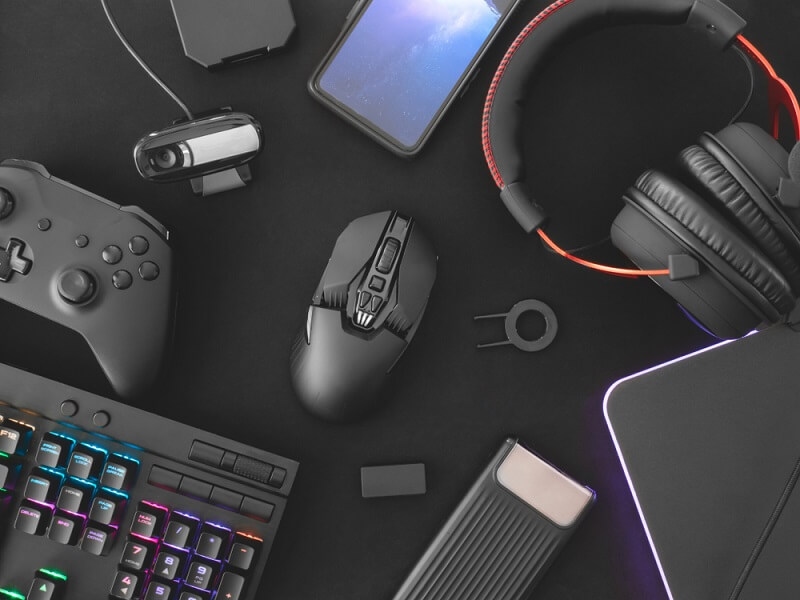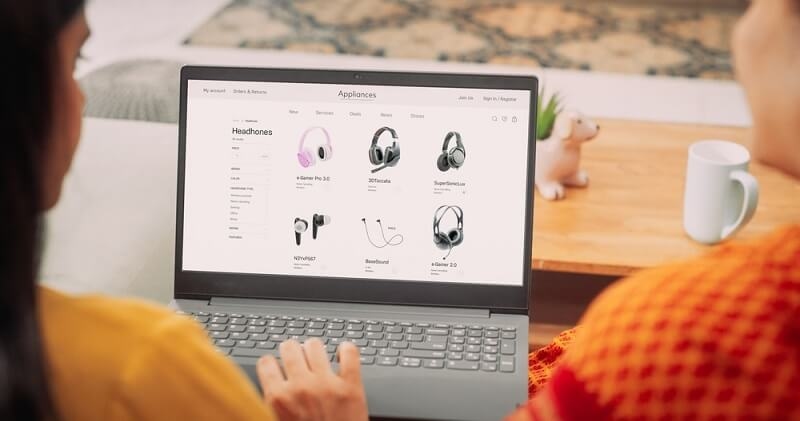
Profitable Computer Accessories to Sell Online in 2025
If there's one thing people can't stop buying, it's computer gear. Think about it - laptops, desktops, tablets, and even gaming rigs are everywhere. But here's the kicker: the devices themselves don't always make the real money. The accessories do. The cables, headsets, webcams, cooling pads, and all those "extras" people suddenly realize they need after buying a shiny new device.
That's why entrepreneurs keep circling this space. In 2025, the market for accessories isn't slowing down. It's exploding. And if you're smart about it, there's a ton of opportunity here. Whether you're just dipping your toes into eCommerce or already running a shop and looking for new product lines, selling the right accessories can be the difference between scraping by and turning a tidy profit.
So let's dig in: which computer accessories to sell online actually make sense in 2025? And how do you cut through the noise to build a business that grows?
Why Accessories, Not Just Computers
Before we talk specific products, let's zoom out. Why focus on accessories in the first place? Simple: margins. Selling a laptop might earn you a few hundred dollars in profit, sure, but the competition is brutal, and customers are picky. Accessories, on the other hand, cost less, sell faster, and people usually don't agonize for weeks before hitting "add to cart."
Plus, accessories have a replacement cycle. Cables wear out. Keyboards get coffee spills. Headphones break. People upgrade for style or comfort even if their old gear still technically works. That repeat demand is gold for sellers.
1. Ergonomic Gear - Comfort Sells
Remote work isn't going anywhere. Millions of people now spend 8+ hours a day hunched over laptops at home. That's why ergonomic accessories are hot. Think adjustable laptop stands, split keyboards, wrist rests, and ergonomic mice.
Customers don't just buy these once - they experiment, they upgrade, and they recommend what works to friends. These items aren't just tools, they're quality-of-life upgrades.
2. Headsets and Webcams - The "Zoom Economy" Lives On

Even though many offices reopened, online meetings remain the default. A good headset or webcam isn't just nice to have; it's essential. The difference between looking pixelated and sounding like you're underwater, versus showing up crisp and clear, can actually affect careers.
This category also keeps evolving - wireless headsets, noise-canceling mics, 4K webcams. If you can stock models that balance quality with affordability, you'll always have customers coming back.
3. Cooling Pads and Fans - For Work and Play
Gamers, coders, and video editors all push their machines hard. Overheating ruins performance, so cooling pads and mini desktop fans are evergreen sellers. Bonus? These products are relatively cheap to source, easy to ship, and appeal to a wide demographic.
4. External Storage and Docking Stations
Cloud storage is big, but when people need speed and security, physical drives still win. External SSDs, USB hubs, and docking stations for laptops are consistently in demand. Students, professionals, gamers - everyone needs extra space or more ports.
These products also open the door to upselling. Someone who buys a docking station might also want a laptop stand, monitor riser, or ergonomic keyboard. Bundling works beautifully here.
5. Cables and Adapters - The "Boring but Profitable" Category
No one wants to buy cables, but everyone needs them. HDMI, USB-C, Thunderbolt, power adapters - they break, they disappear, or they're incompatible with the newest gadget. Cables have low costs, high margins, and steady demand.
They might not feel glamorous, but they're the bread and butter of accessory sales.
6. Trending Tech Gadgets
Here's where it gets fun. Every year brings new trending tech gadgets that people don't technically need but can't resist. Think wireless charging pads, RGB-lit mouse pads, mechanical keyboards with custom switches, or portable laptop projectors.
Trendy products can create big spikes in sales if you ride the wave early enough. The risk? Fads fade. The trick is balancing trendy items with evergreen staples like cables and storage.
7. Refurb Accessories and Wholesale
Not everyone wants to pay full price for new gear. That's why refurbished accessories - keyboards, mice, docking stations - are a surprisingly strong niche. Pair that with sourcing wholesale computer products at low cost, and you can offer deals that beat major retailers while still making solid margins.
Refurb + wholesale also appeals to eco-conscious buyers. They love the "reuse" angle, and you get inventory that moves fast.
Picking Your Lane: Don't Sell Everything
One mistake new sellers make? Trying to stock every accessory under the sun. That's overwhelming for you and confusing for buyers. Instead, think in terms of niches.
Are you targeting remote workers? Gamers? Small businesses? Each audience has specific needs. A gamer might care more about cooling pads and flashy RGB keyboards, while a remote worker wants ergonomic gear and webcams.
That's where brainstorming tech niche ideas comes in. A focused store feels intentional, curated, and trustworthy. A scattered store just looks like a flea market.
How to Market Computer Accessories
Once you've got your products, the real challenge begins: getting people to notice. Running a computer eCommerce business is about more than uploading product pictures and waiting.
Practical tips:
Good photos matter. Show products in real settings - a sleek desk, a gamer setup, a student workspace.
Content sells. Write short blogs, reels, or TikToks showing how the product solves problems. "Here's how a laptop stand stopped my neck pain." That's relatable.
Bundles and upsells. Suggest "buy together" combos - like a docking station with a laptop stand.
Reviews drive trust. Send a follow-up email asking for honest reviews. A page of 5-star ratings will outperform the fanciest ad campaign.
Pricing Smart
Accessories have a sweet spot. Too cheap, and people assume poor quality. Too expensive, and they go straight to Amazon or Best Buy. Competitive pricing doesn't always mean being the lowest - sometimes offering better service, warranties, or bundles gives you the edge.
Building Trust in a Crowded Market
Here's the thing: you're not the only one selling accessories. So why should someone choose your store? The answer is simple: trust. Be upfront with shipping times, offer clear return policies, and don't oversell. Customers can smell exaggeration from a mile away.
Even a small store can look legitimate with solid branding and professional customer service. In fact, smaller stores often feel friendlier, which works in your favor.
Scaling Up
If things go well, you'll eventually face the big question: how do you grow without stretching too thin? This is where online store growth strategies kick in.
Options include:
Expanding into new categories (like smart home gadgets or office furniture).
Partnering with influencers for product placements.
Selling on multiple platforms (Shopify + Amazon + Etsy).
Automating inventory and fulfillment to save time.
The trick is not growing for the sake of growth, but scaling in ways that make your systems stronger.
The Human Side of Selling
It's easy to get lost in the spreadsheets, margins, and ads. But remember: every accessory you sell solves a problem for someone. A student finally backs up their thesis. A gamer's rig stays cool. A remote worker avoids chronic neck pain. Those are small wins, but they add up.
When you treat your customers like people, not just orders, you build loyalty that no competitor can steal.
Worth A Look: How to Scale Your Business Effectively Without Big Risks
Final Thoughts
Selling accessories online isn't glamorous, but it's profitable - if you play it right. Focus on products with steady demand, dabble in trends carefully, and don't try to sell everything at once. Carve out a niche, build trust, and market like a human, not a robot.
In 2025, people will still need cables, stands, and headsets. They'll still crave the latest gadgets. And they'll keep clicking "buy now" if you give them a reason to trust your store.
So if you've been thinking about diving in, this is your sign. Start small. Test. Learn. Then scale. The opportunity is sitting right there on every cluttered desk and gaming setup in the world.
Categories
- Arts & Entertainment 100
- Automotive 186
- Business & Professional Services 219
- Construction & Contractors 298
- Clothing & Accessories 76
- Community & Government 95
- Computers & Electronics 74
- Education 75
- Food & Dining 86
- Health & Medicine 186
- Legal & Financial 100
- Home & Garden 179
- Industry & Agriculture 105
- Media & Communications 44
- Personal Care & Services 73
- Real Estate 68
- Shopping 74
- Sports & Recreation 87
- Travel & Transportation 102
- Animals & Pets 11
- Arts 9
- Community 9
- Chain 607
- Computers & Internet 8
- Health Care 10
- Communication & Media 7
- Shopping & Retail 10
- Health & Beauty 9
- Education & Schools 8
- Financial & Legal Services 14
- Home & Office 13
- Lawyers & Legal Services 7
- Financial & Services 1
